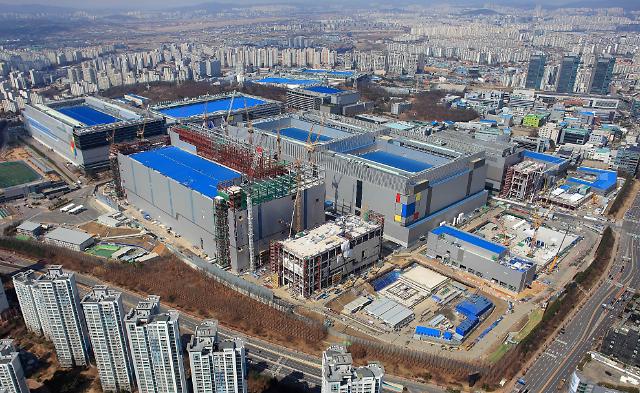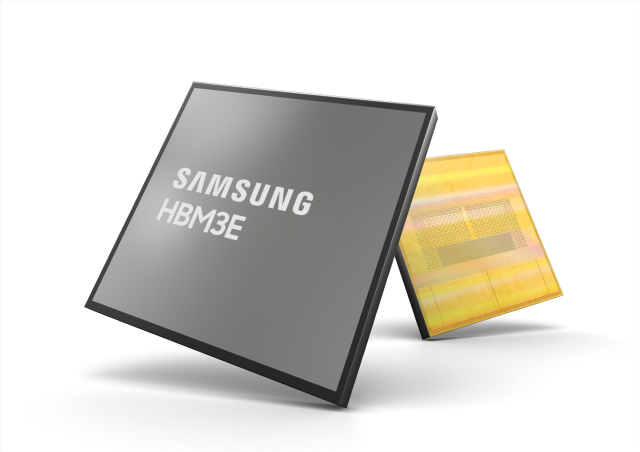
[Courtesy of Samsung]
The world's largest microchip maker said in a statement on Wednesday that its investment would help create 15,000 jobs in research and development (R&D) as well as production to bolster its technological prowess.
LSI, also known as Large-Scale-Integration, is a chip-making process in which thousands of transistors are integrated or embedded onto a single silicon chip. Foundry refers to a semiconductor fabrication plant operation.
The investment will be composed of 73 trillion for domestic R&D and 60 trillion for production infrastructure, Samsung said, adding that investments in R&D and facilities for logic semiconductors are expected to amount to an average 11 trillion per year until 2030.
At a cabinet meeting on March 19, President Moon Jae-in called for quick measures to increase the competitiveness of non-memory semiconductors, which are relatively weak compared to memory semiconductors.
In response, Samsung vowed to lead the establishment of an ecosystem for South Korea's system semiconductor industry by supporting design-related intellectual property so that domestic fabless businesses can strengthen their competitive edge. Fabless manufacturing is the design and sale of hardware devices and semiconductor chips while outsourcing the fabrication of devices to a specialized manufacturer called a semiconductor foundry.
Samsung's investment plan came a month after its domestic rival, SK hynix, won state approval to use land in Yongin, about 40 kilometers (25 miles) south of Seoul, and build the world's largest semiconductor cluster with an investment of about 120 trillion won after 2022.
In the cluster aimed at maintaining a competitive edge over Chinese companies, SK hynix plans to build four fabrication plants. The cluster, which will house about 50 equipment, parts and material makers, would become a base for the production of next-generation microchips and the convergence of new technologies.
China was a major topic at a meeting of Samsung shareholders in March last year, with top executives calling for pre-emptive measures to head off a daunting challenge by Chinese rivals and widen a gap with them by stepping up the development of new technologies and products.
Samsung's net profit in the fourth quarter of 2018 fell 30.7 percent on-year to 8.46 trillion won, ending its record-setting performance driven by a wave of robust growth in the microchip business. In the semiconductor division, Samsung's fourth-quarter operating profit was down 28.7 percent to 7.77 trillion won, as demand for memory chips declined sharply.
For decades, the semiconductor industry has been highly cyclical. Demand was mainly driven by the personal computer market throughout the 1980s and 1990s and smartphones later on. Experts predict a different cycle, citing the broadened usage of highly efficient chips to meet the needs of a new industry.




![[INTERVIEW] Chilean public works minister seeks S. Koreas investment for Chiles transport infrastructure projects](https://image.ajunews.com/content/image/2024/03/18/20240318105416562770.jpg)